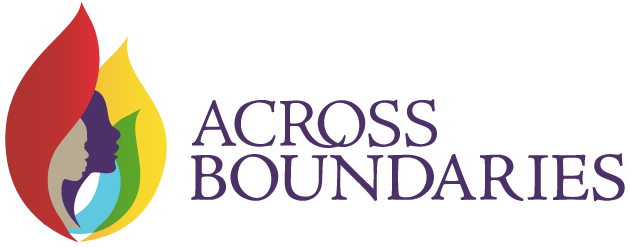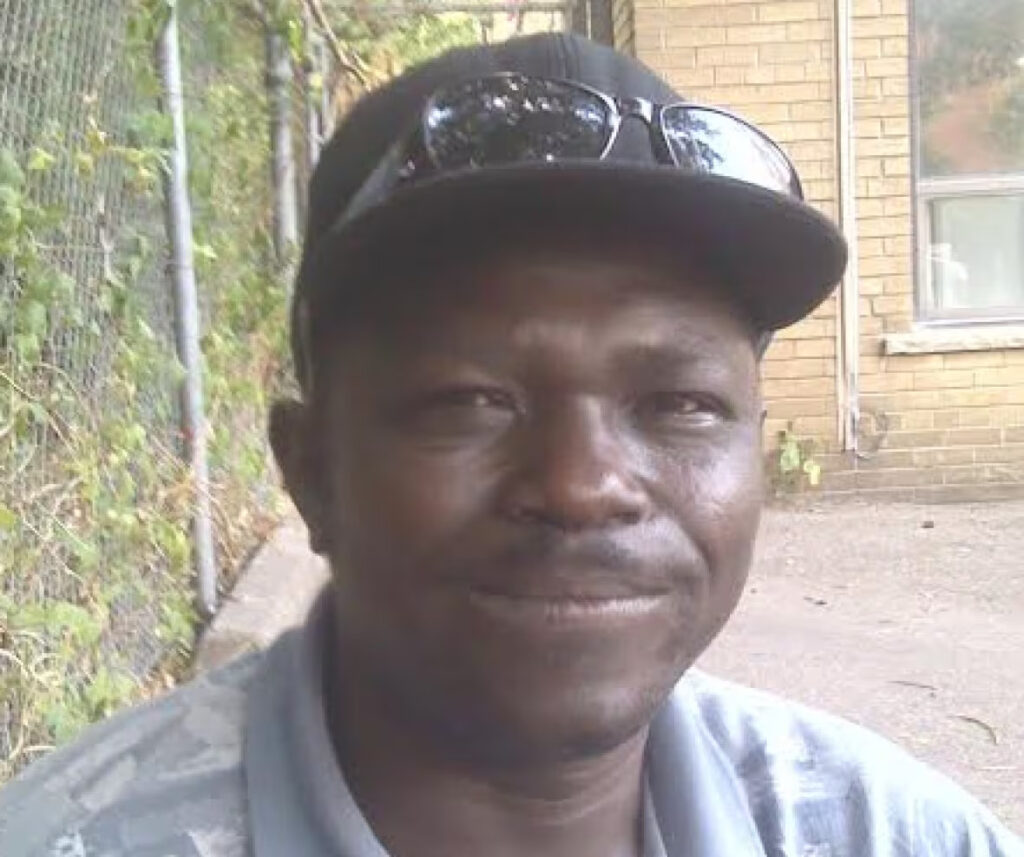Trigger Warning:This blog contains content related to death, violence, and racism, which may be distressing for some readers. Please take care while reading, and engage only if and when you feel ready.
Saturday July 5th marked ten years since the killing of Andrew Loku. To commemorate this anniversary, Across Boundaries held a powerful webinar featuring Dr. Idil Abdillahi, Wendy Gillis, and Shane Martinez, moderated by Dr. Kwame McKenzie, to honour Andrew’s life and legacy. Together, we asked: How far have we come in demanding accountability and advancing change?
Who Was Andrew Loku?
Andrew Loku was a 45-year-old South Sudanese refugee, a father of five, a survivor of civil war, and a valued member of the Toronto community. Soft-spoken and quiet, Andrew was known by everyone for his warm smile and kind presence.
At the time of his death he was receiving support for his mental health and addictions from Across Boundaries and supportive housing from the Canadian Mental Health Association, Toronto. He was well-liked and was working toward several personal goals—one of which he had recently achieved by graduating from George Brown College’s woodworking program. Andrew also led music sessions with other Across Boundaries service users and was deeply involved in his church.
A Tragic Case of Police Violence and Anti-Black Racism
On July 5, 2015, Andrew Loku, disturbed by noise from the apartment above, went upstairs to resolve the issue. The following interactions led to a neighbor calling the police. Within 20 seconds of arriving, Toronto Police officer Andrew Doyle shot and killed Andrew Loku.
His death sparked city-wide outrage and grief, becoming a symbol of the deadly intersection of anti-Black racism and mental health crises in Canada. A public inquest followed, resulting in 39 recommendations aimed to increase accountability and prevent further tragedies—18 directed at the Toronto Police Services Board (Board). One of these led to the creation of the Anti-Racism Advisory Panel (ARAP), established to advise the Board on systemic bias and police interactions with racialized individuals experiencing mental health issues.
Key recommendations included:
- Addressing systemic racism, including mandatory anti-Black racism and implicit bias training;
- Data collection on race in use-of-force cases;
- Expanding access to culturally appropriate mental health services;
- Reforming police response to mental health crises.
However, as highlighted on our webinar, nearly a decade later, only three of the 18 Loku-specific recommendations have been implemented by the Board. While bureaucratic inertia plays a role, the deeper issue is the police institution’s resistance to cultural change—a persistent failure to enact meaningful reform.
When ARAP, a panel that is supposed to oversee the implementation of the recommendations, is in fact reporting to the Board, and co-chaired by a member of that Board, conflict of interest is a reality.
Some Progress, But Not Enough
There have been some signs of progress. Efforts such as the City of Toronto’s funding of community-led crisis response teams, and the release of new data points by the Toronto Police Services, show movement in the right direction. However, these initiatives remain limited and fall short of the meaningful change that is needed.
For example, the Toronto Community Crisis Service responds to some mental health emergencies without police involvement — a long-standing demand of Black and racialized communities. However, a police presence still exists in many situations, which can pose a risk to our communities.
Additionally, journalists and advocates face even greater barriers in accessing vital case information. While the Police Special Investigation Unit (SIU) now releases more detailed reports, the recent changes to its naming policy limits the public’s ability to identify victims, which in turn obscures critical context and reduces accountability.
A Call for Lasting Change
Andrew Loku should be alive today. So should Regis Korchinski-Paquet. So should D’Andre Campbell. These are not isolated incidents. They are evidence of a system that fails to protect — and too often harms — those most in need.
Across Boundaries has continued to grow in response to the rising demand from Black, and racialized communities seeking care that reflects their realities. But we cannot meet this moment with only small, incremental reforms.
Despite growing awareness, government budgets continue to prioritize policing over social and mental health services — a stark misalignment of values.
These are heavy truths. But it matters that we face them — that we show up, reflect, and demand better. We must continue to speak Andrew Loku’s name, hold those in power accountable, and ask the hard questions that lead to real solutions.
Let Andrew Loku’s legacy be more than a hashtag or a headline. Let it be a catalyst for lasting structural change — We need to keep these conversations alive and ensure that we continue to ask the questions that will help us get to a place where calling for help, where living with a mental illness, being in a racialized or Black body, and being in crisis does not have to mean a death sentence.




